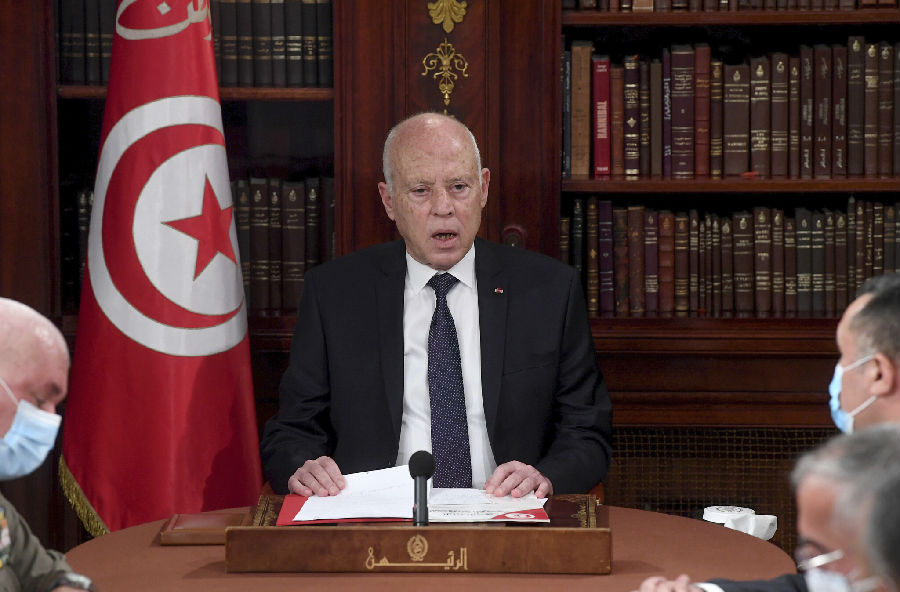The world this week - Politics
本周国际要闻——政治
Tunisia’s president, Kais Saied, fired the prime minister, suspended parliament for 30 days and assumed executive authority. The power grab, he said, was justified by the constitution and necessary to quell unrest over a sputtering economy and one of Africa’s worst outbreaks of covid-19. Many Tunisians cheered the move, which came after a day of protests aimed at the government. But international watchdogs raised concern over Mr Saied’s actions to suppress dissent, such as banning public gatherings of more than three people. Ennahda, the largest party in parliament, accused him of a “coup”.
突尼斯总统凯斯·赛义德解雇了总理,暂停议会30天,并接管了行政权。他说,夺权是符合宪法的,也是平息因经济低迷和非洲最严重的新冠疫情之一而引发的动荡所必需的。许多突尼斯人对这一举动表示欢迎,此前针对政府的抗议活动持续了一天。但国际监督机构对赛义德镇压异见人士的行为表示担忧,比如禁止三人以上的公共集会。议会中最大的政党复兴运动党指责他发动了一场“政变”。

A court in Tanzania charged Freeman Mbowe, leader of the main opposition party, with “terrorist-related” crimes. Mr Mbowe had been campaigning for changes to the constitution. Critics accused the new president, Samia Suluhu Hassan, of continuing the authoritarian practices of her late predecessor, John Magufuli.
坦桑尼亚一家法院指控主要反对党领袖弗里曼·姆鲍威犯有“与恐怖主义有关”的罪行。姆鲍威一直在争取修改宪法。批评人士指责新总统萨米亚·苏鲁胡·哈桑延续了已故前任总统约翰·马古富利的独裁做法。
The UN’s food programme said it would soon run out of food in Ethiopia’s war-torn Tigray region, leaving hundreds of thousands of people at risk of starvation. More than 100 lorries carrying emergency supplies have been halted in the neighbouring Afar region.
联合国粮食计划署表示,在埃塞俄比亚饱受战争蹂躏的提格雷地区,粮食很快将耗尽,数十万人将面临挨饿的风险。在邻近的阿法尔地区,100多辆运载着紧急物资的卡车被拦截。
Soldiers from Botswana and South Africa arrived in Mozambique, where they will help the government battle jihadists who have overrun parts of the northern-most province of Cabo Delgado. They join 1,000 troops from Rwanda, who have already been involved in several firefights with the insurgents.
来自博茨瓦纳和南非的士兵抵达莫桑比克,他们将帮助莫桑比克政府打击占领了最北部德尔加杜角省部分地区的圣战分子。他们加入到来自卢旺达的1000名士兵的行列中,这些士兵已经与叛乱分子交火过几次。
译文由可可原创,仅供学习交流使用,未经许可请勿转载。












